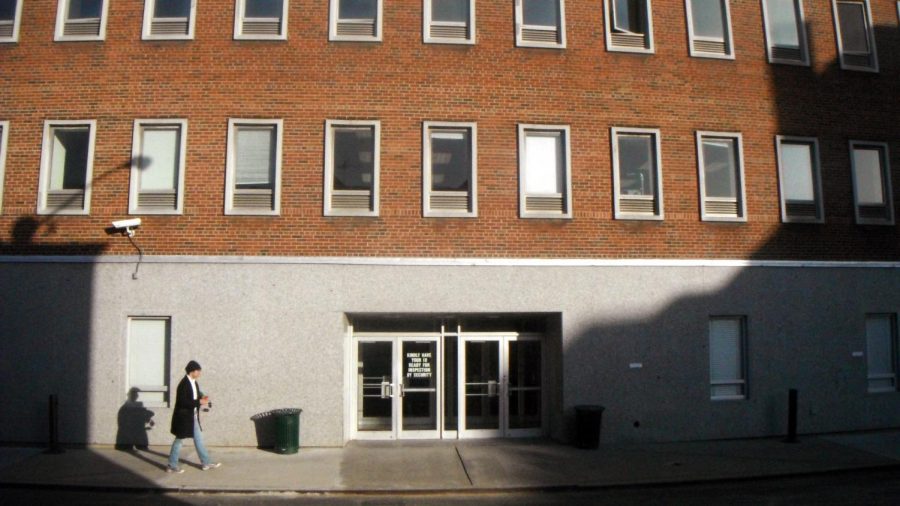Classics Graduate Program Admissions Put on Hiatus
Fordham’s classics graduate program is currently on a two-year graduate admissions hiatus.
According to Melissa Labonte, Ph.D., interim dean of the Graduate School of Arts and Sciences (GSAS), the hiatus was announced to graduate students and faculty in Nov. 2019.
Labonte said the University took this step at the recommendation of interim chair of classics, Jacqueline Reich, Ph.D., after consultation with the dean of the faculty and associate vice president of arts and sciences Eva Badowska and the Office of the Provost.
“This decision was informed by thorough, careful analysis and extensive deliberation,” Labonte said. “Since the decision was implemented in November, the interim chair, in collaboration with the department and GSAS, has taken steps to support classics graduate students to the fullest and most effective extent possible.”
Olivia Baquerizo, a first-year Ph.D. student at Lincoln Center, said she found out about the hiatus on Friday, Nov. 15, at 9 a.m. when Labonte sent out a memorandum informing the students that this hiatus would be in effect for the next two years.
She said Labonte and Reich met with the classics faculty at Rose Hill in the morning and with the graduate students later that day to explain what was happening and why.
Baquerizo said the decision was made without consultation with the classics faculty, so none of the students or faculty expected the announcement. She said both meetings that day were unsatisfactory.
“We have been told that the hiatus is necessary to fix perceived problems in our department, but the administration has failed to satisfactorily explain how suspending admissions will help to fix those problems,” said Bertram Schewel, GSAS ’21.
Baquerizo said the current graduate students have been assured that this hiatus will not affect their progress in completing their degrees nor their funding packages.
Fordham’s classics department is part of the Classics Consortium, an agreement whereby students from NYU, CUNY and Fordham can take courses at any of these institutions as if they were taking the class at their home institution.
Labonte said Fordham’s place within the Classics Consortium will continue to operate as it has over the past few years in recognition of the benefits the arrangement provides to our faculty and students, as well as other Consortium members.
New initiatives are being explored and developed to promote steady student progress toward degree completion and to enhance professional development, according to Labonte.
“It should be emphasized that during the hiatus period, all department faculty are being encouraged to consider how to meet the challenges of the new disciplinary and graduate education landscape in classics,” Labonte said. “We are committed to working with them as they begin to imagine and chart a sustainable future pathway for the teaching of classics at Fordham.”
Matthew McGowan, Ph.D., associate professor of Classics, said he wants to keep the conversation going.
“I understand the Administration’s position — maintaining academic excellence takes constant care — but Fordham is an excellent place for Classics right now, and there’s so much potential here,” he said. “I’d love to see us work together — students, faculty, administrators, alumni — to capitalize on the University’s unique strengths and reinvigorate our program at every level: BA, MA and Ph.D.”
Baquerizo said she has a very high opinion of this classics graduate program.
“The academics offered through Fordham are strong, and the collaboration between our department and medieval studies opens up many opportunities for interdisciplinary work,” she said. “There is great camaraderie among the graduate cohort, the knowledge that our faculty, especially Dr. Matthew McGowan, look out for us, and the Classics Consortium lets us interact with faculty and graduate students from across the city.”
Schewel said the classics graduate program has placed its most recent graduates in gainful employment.
“We enjoy the respect of the field as a whole, made evident by the glowing letter sent by the Societal for Classical Studies in support of our program,” he said.
Bryan Whitchurch, GSAS ’19, graduated from the classics program last spring and said he had the opportunity to read as much Greek and Latin as he could. He said he developed his skills at understanding texts while at Fordham. He said he was especially appreciative of the Jesuit tradition he got to be a part of while here.
Whitchurch said he found out about the hiatus after current graduate students called him and told him about it.
“It’s sad because they have so much potential,” he said. “I hope they can show more transparency and be more clear about why they’re doing this and hopefully what they’re going to do to try and give the department the resources it needs to become a flourishing Ph.D. program.”










































































































































































































